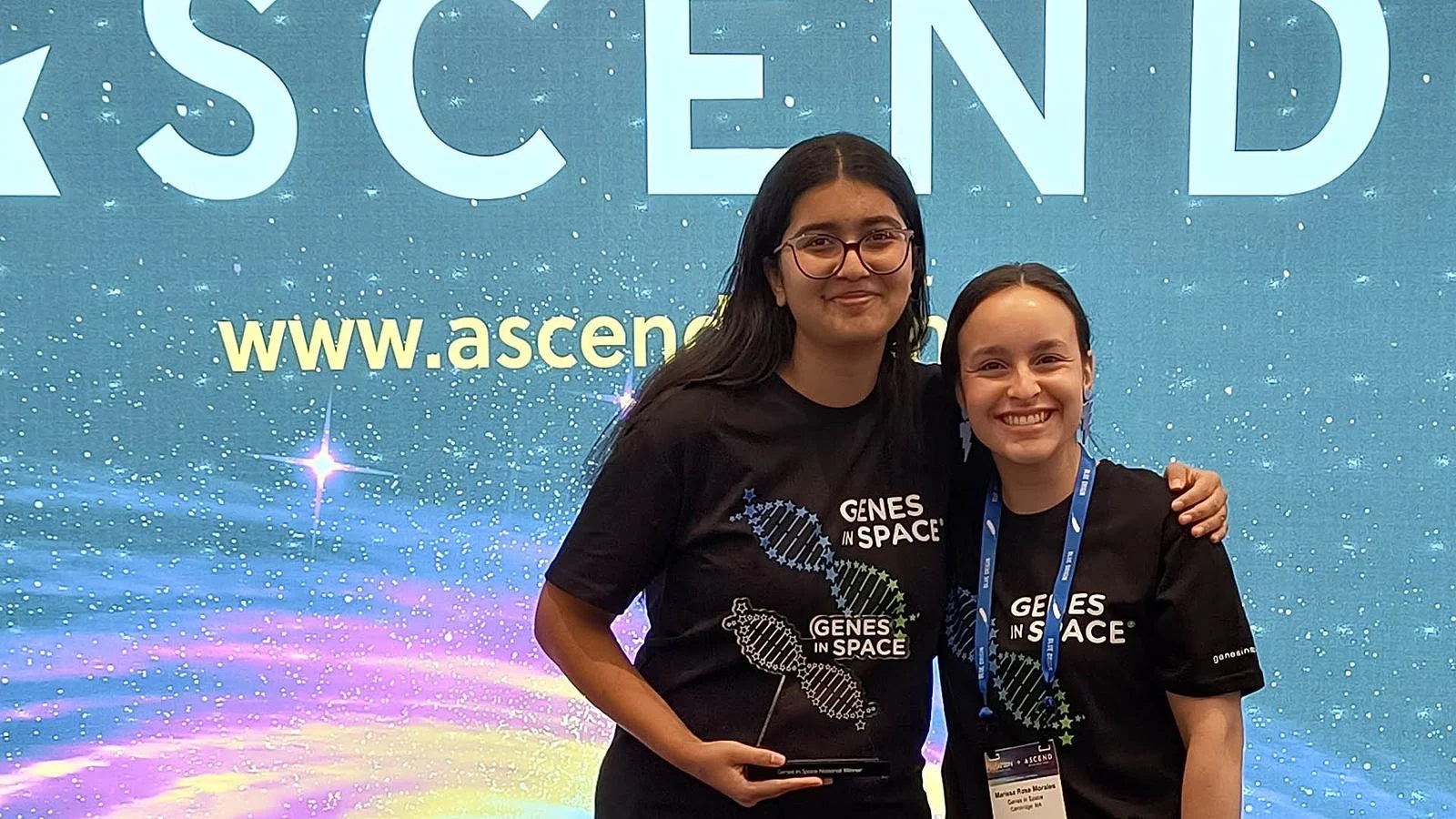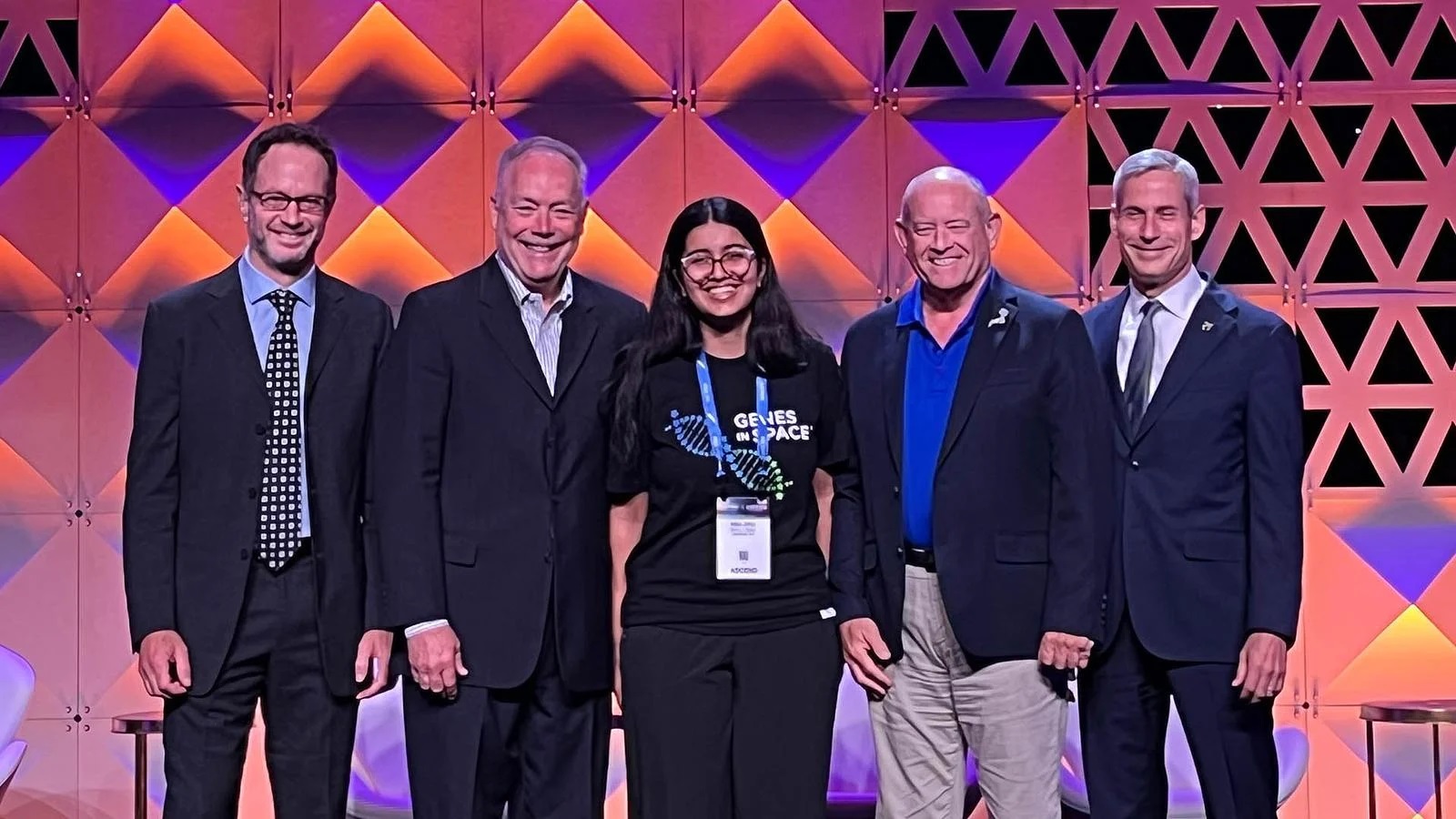The Genes in Space competition has selected its latest winner, Nitya Johar, 17, from Skyline High School in Sammamish, Washington, whose research explores the topic of codon usage bias in space — the non-random use in cells of certain RNA sequences, known as codons, over other RNA sequences to code for amino acids.
- Unequal codon use could influence how efficiently and accurately proteins are synthesized in space and would have profound implications for the future of spaceflight medicine and biomanufacturing in space environments.
Why it matters: Genes in Space, co-founded and supported by Boeing, fosters a new generation of scientists by giving students a chance for their research to be conducted in microgravity.
- The competition challenges students to design experiments that advance understanding of molecular biology in space.

